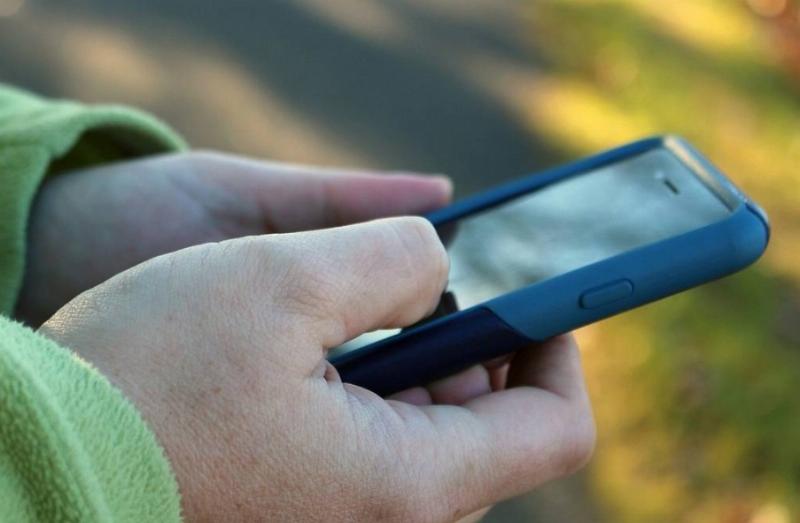


The stories of tyrannical government intrusions coming out of China and the U.K. should terrify everyone. It calls to mind Benjamin Franklin’s quote: “Those who would give up essential Liberty, to purchase a little temporary Safety, deserve neither Liberty nor Safety.” That’s how it starts, with lines like “Two weeks to slow the curve.” Next thing you know, a year has gone by, and people have lost their jobs because they refused to take the “Fauci Ouchie.”
In this context, the push for digital IDs emerges not as a simple technological upgrade, but as a Trojan horse for unprecedented government intrusion. Americans (conservatives, that is) have always championed limited government, individual sovereignty, and the right to privacy as enshrined in the Fourth Amendment. Proponents of centralized digital identity systems proclaim their promises of efficiency and security, yet they prioritize bureaucratic control over liberty. By consolidating our personal data into vast, vulnerable databases, digital IDs enable pervasive surveillance, invite catastrophic breaches, and turn inalienable rights into revocable privileges. Metadata, such as timestamps, locations, and device details, is logged automatically and paints a comprehensive portrait of one’s life without consent.
Each digital verification, such as checks of age or identity, creates a record accessible to governments or corporations and builds a profile that tracks movements, purchases, and associations. It violates the separation between private life and state scrutiny. The government has no right to know where we travel, what we buy, what we own, what we think, or what faith we practice.
Centralized systems exacerbate this. They merge health records, financial data, tax filings, purchases, and even social media activity into a single repository. Authoritarian regimes like China’s are exploiting these tools via social credit systems, where dissent on monitored platforms triggers restrictions on travel or employment. Here at home, similar frameworks risk normalizing a “panopticon,” where the anonymity of free thought and association vanishes. Security breaches compound this, turning digital IDs into hacker magnets and single points of failure. By design, centralized databases amass irreplaceable biometric data — facial scans, iris patterns, fingerprints — making them a “hacker’s goldmine.”
A compromised digital ID can’t be easily replaced, like a stolen wallet. It permeates every corner of life, enabling identity theft, fraud, and long-term harassment. A glaring example is the TeaOnHer app breach, where 53,000 users’ driver’s licenses, selfies, emails, and addresses were exposed via unsecured links. This resembled a prior leak of thousands of government IDs and private messages. Once a government-issued ID is handed over for online “verification,” it may be stored on unsecure servers. A single breach can then turn it into a permanent liability and expose the victim to persistent threats.
As conservatives, we are suspicious of federal overreach, and we see this as a cautionary tale. We know that entrusting the state with such power invites not just hacks, but misuse by insiders, where data harvested for “efficiency” fuels political targeting. Digital IDs threaten personal liberty by making freedoms conditional on state approval. Who wants to trust his digital ID to the likes of Adam Schiff, Chuck Schumer, Ilhan Omar, or Zohran Mamdani? What starts as optional verification soon changes into mandatory gateways for society — access to banking, travel, health care, or even employment hinging on a digital stamp of compliance.
The 2021 Canadian vaccine mandates illustrate this. Unvaccinated citizens were deemed second-class and were digitally barred from restaurants, gyms, churches, and airlines. Their rights to assemble, worship, and travel were reduced to privileges doled out by algorithm. China’s health code system takes it farther, assigning color codes based on location and online behavior. A “red” status for “wrong opinions” enforces quarantine and blocks public access, all via real-time facial recognition linked to a national database. Jaywalkers in Nanjing face instant shaming on billboards, fines via text, and social credit demotions. Petty offenses are amplified into life-changing penalties. As one critique warns, these systems are “ripe for exploitation and abuse, to the detriment of our freedoms and democracies,” enabling A.I.-driven decisions without transparency or appeal.
Those of us who retain some semblance of rationality see this as tyranny’s blueprint. Government, bloated by data, punishes non-conformity while rewarding loyalty, echoing the Founders’ fears of unchecked power. Once implemented, reversal would be nearly impossible due to the creation of interdependencies and pressures. Organizations and individuals would become adapted to them and resist their abolition. This could lock generations into a web of control.
The solution demands eternal vigilance. We must reject mandatory digital IDs, demand decentralized alternatives with zero-knowledge proofs, and enforce data minimization under constitutional guardrails. Conservatives must lead this charge. We know that true security comes from self-reliance, not state omniscience. Ronald Reagan warned, “Trust but verify,” and never surrender your identity to the machine. When we defend privacy and liberty, we safeguard the soul of our blessed Republic.

Image via Picryl.
